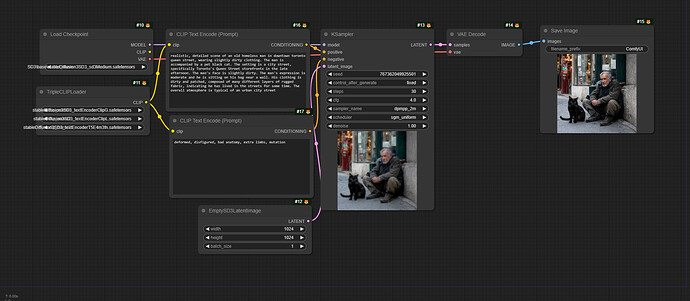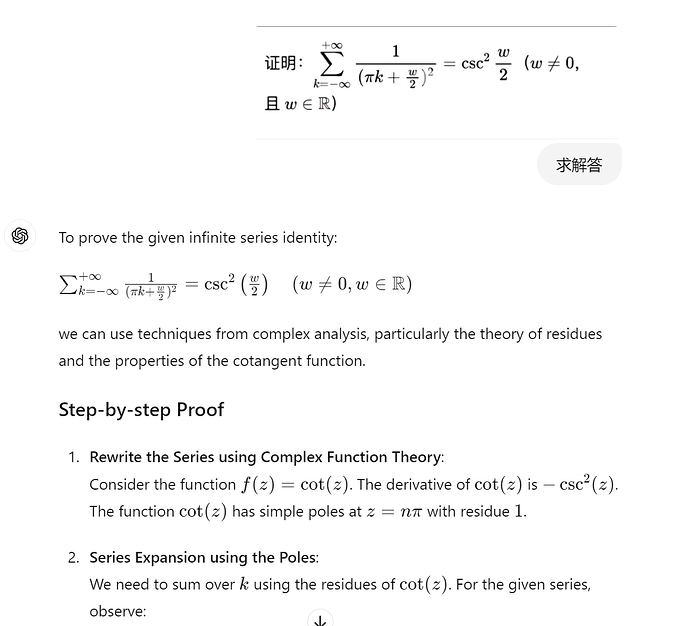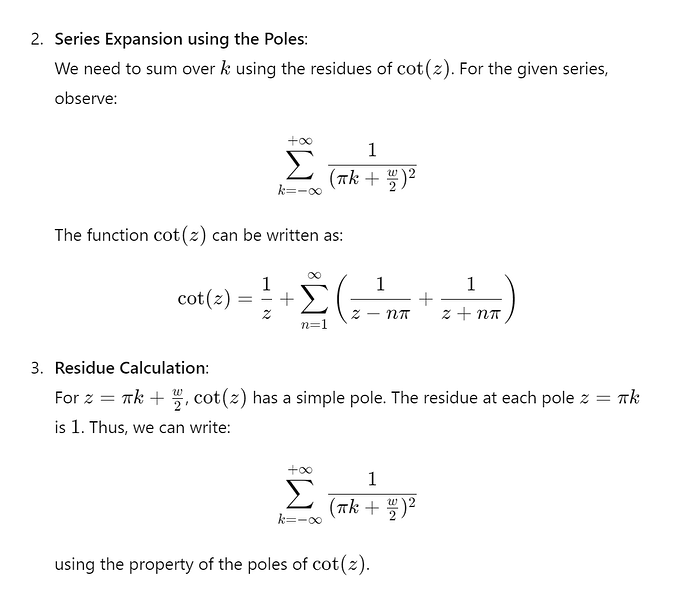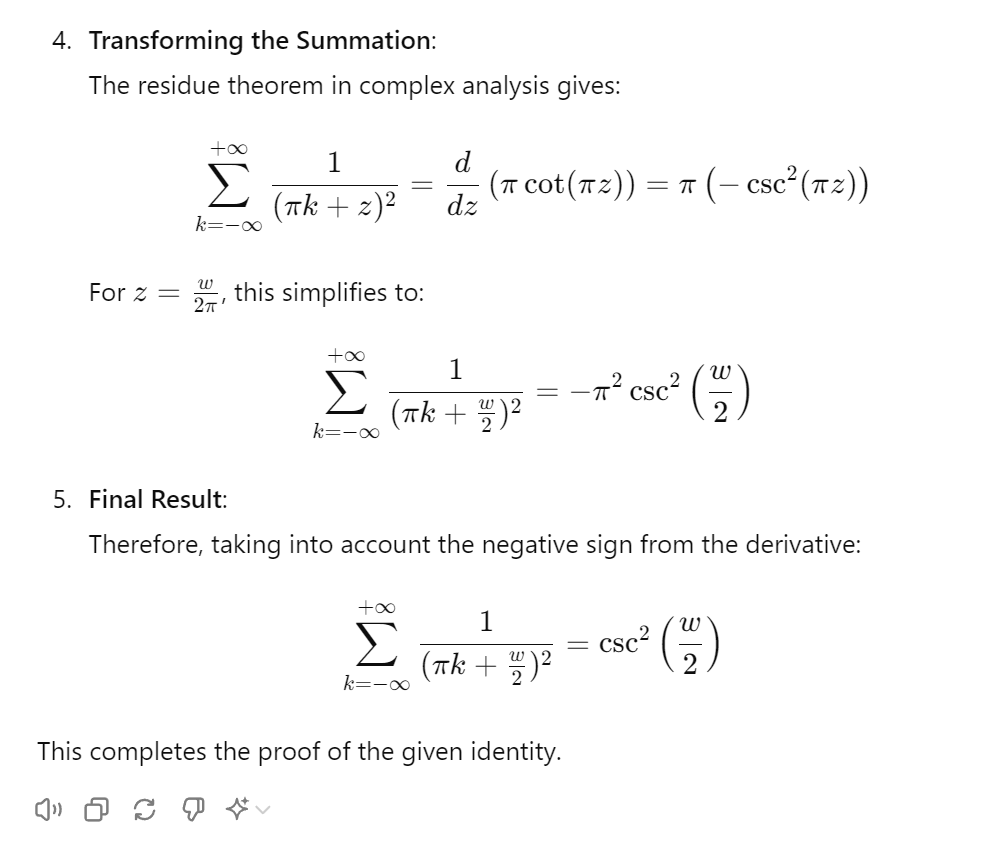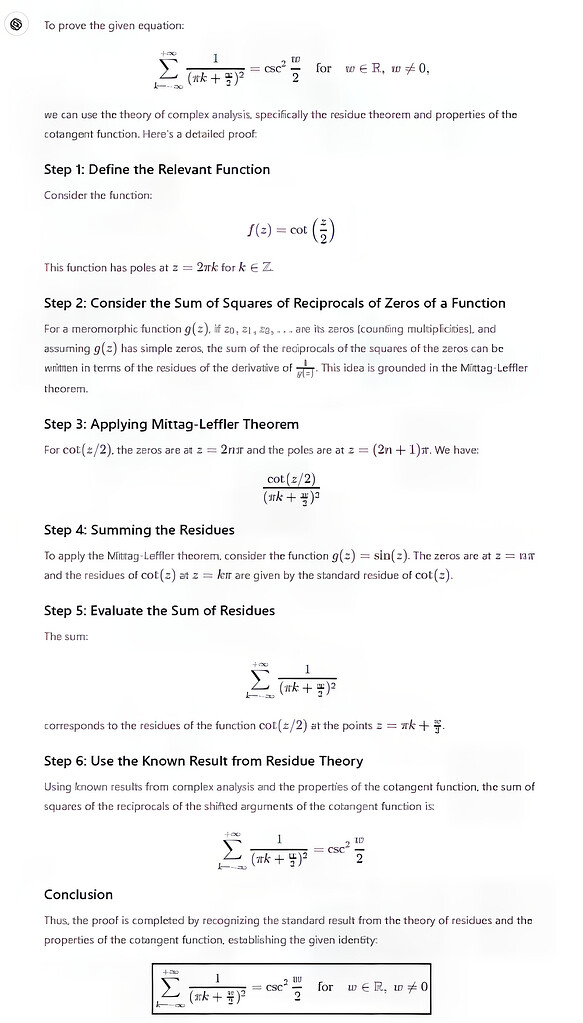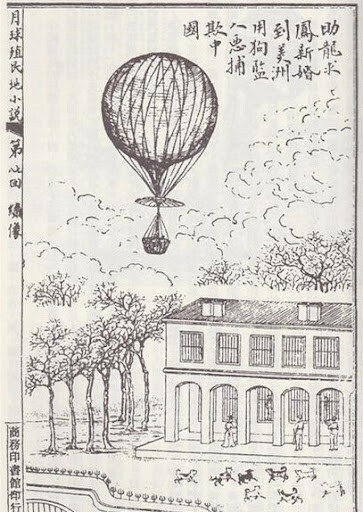这就说明证明过程没问题。我才国内把这个封了,是不希望学生上网抄这一类的答案吧。
我也用GPT3.5试过,3.5不懂得原式的image。3.5虽然也可以证明,但很难读懂证明过程:
To prove the given equation:
[
\sum_{k=-\infty}^{+\infty} \frac{1}{(\pi k + \frac{w}{2})^2} = \csc^2 \frac{w}{2} \quad \text{for} \quad w \in \mathbb{R}, ; w \neq 0,
]
we can use the theory of complex analysis, specifically the residue theorem and properties of the cotangent function. Here’s a detailed proof:
Step 1: Define the Relevant Function
Consider the function:
[
f(z) = \cot \left( \frac{z}{2} \right)
]
This function has poles at ( z = 2\pi k ) for ( k \in \mathbb{Z} ).
Step 2: Consider the Sum of Squares of Reciprocals of Zeros of a Function
For a meromorphic function ( g(z) ), if ( z_0, z_1, z_2, \ldots ) are its zeros (counting multiplicities), and assuming ( g(z) ) has simple zeros, the sum of the reciprocals of the squares of the zeros can be written in terms of the residues of the derivative of ( \frac{1}{g(z)} ). This idea is grounded in the Mittag-Leffler theorem.
Step 3: Applying Mittag-Leffler Theorem
For ( \cot(z/2) ), the zeros are at ( z = 2n\pi ) and the poles are at ( z = (2n+1)\pi ). We have:
[
\frac{\cot(z/2)}{(\pi k + \frac{w}{2})^2}
]
Step 4: Summing the Residues
To apply the Mittag-Leffler theorem, consider the function ( g(z) = \sin(z) ). The zeros are at ( z = n\pi ) and the residues of ( \cot(z) ) at ( z = k\pi ) are given by the standard residue of ( \cot(z) ).
Step 5: Evaluate the Sum of Residues
The sum:
[
\sum_{k=-\infty}^{+\infty} \frac{1}{(\pi k + \frac{w}{2})^2}
]
corresponds to the residues of the function ( \cot(z/2) ) at the points ( z = \pi k + \frac{w}{2} ).
Step 6: Use the Known Result from Residue Theory
Using known results from complex analysis and the properties of the cotangent function, the sum of squares of the reciprocals of the shifted arguments of the cotangent function is:
[
\sum_{k=-\infty}^{+\infty} \frac{1}{(\pi k + \frac{w}{2})^2} = \csc^2 \frac{w}{2}
]
Conclusion
Thus, the proof is completed by recognizing the standard result from the theory of residues and the properties of the cotangent function, establishing the given identity:
[
\boxed{\sum_{k=-\infty}^{+\infty} \frac{1}{(\pi k + \frac{w}{2})^2} = \csc^2 \frac{w}{2} \quad \text{for} \quad w \in \mathbb{R}, ; w \neq 0}




